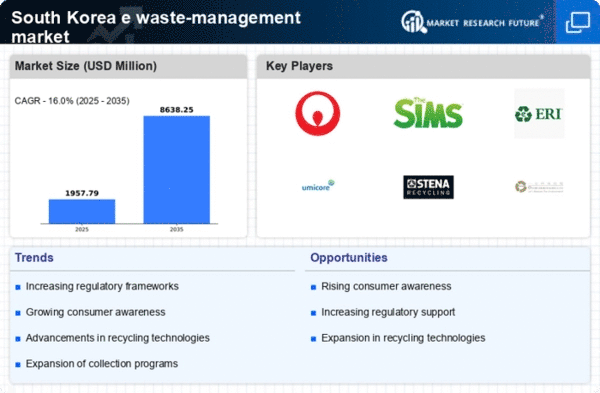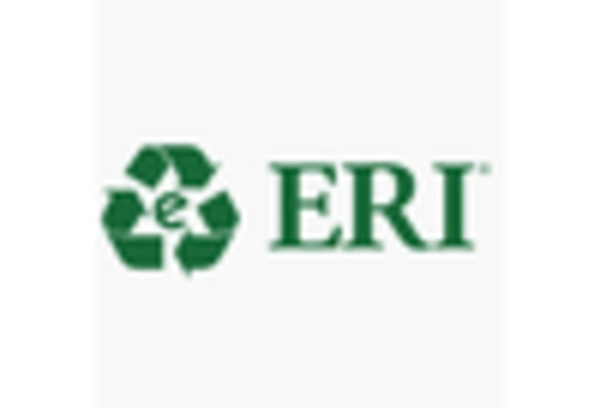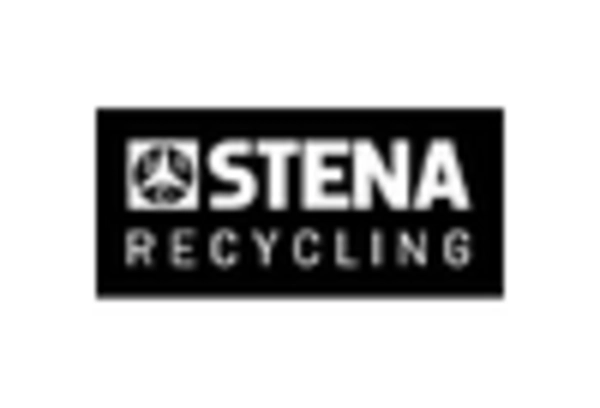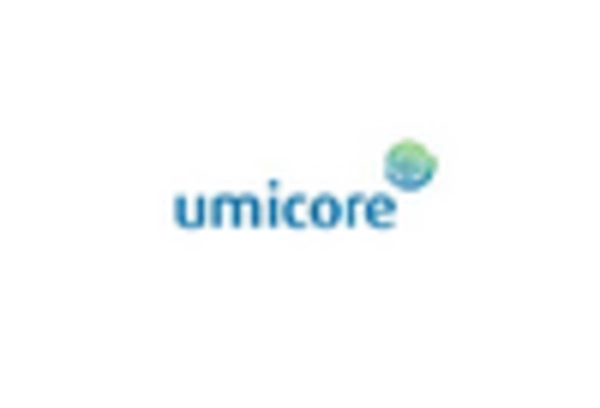Rising E-Waste Generation
The e waste-management market in South Korea is experiencing a notable increase in e-waste generation, driven by rapid technological advancements and consumer electronics proliferation. In 2025, it is estimated that South Korea will generate approximately 1.5 million tons of e-waste, reflecting a growth rate of around 10% annually. This surge in electronic devices, including smartphones, laptops, and home appliances, necessitates effective waste management strategies. The growing volume of discarded electronics poses environmental challenges, prompting the need for robust recycling and disposal solutions. As a result, stakeholders in the e waste-management market are compelled to innovate and enhance their operational capabilities to address the escalating e-waste crisis. This trend indicates a pressing demand for efficient recycling processes and sustainable practices within the industry.
Collaboration with Private Sector
Collaboration between public and private sectors is emerging as a vital driver for the e waste-management market in South Korea. Partnerships between government agencies, non-profit organizations, and private companies are fostering innovative solutions for e-waste disposal and recycling. In 2025, it is projected that collaborative initiatives will lead to the establishment of at least 50 new recycling facilities across the country, enhancing the capacity for e-waste processing. These collaborations not only facilitate knowledge sharing and resource pooling but also promote the development of best practices in waste management. By leveraging the strengths of various stakeholders, the e waste-management market can achieve greater efficiency and effectiveness in addressing the challenges posed by increasing e-waste generation.
Government Initiatives and Policies
The South Korean government has implemented various initiatives aimed at promoting sustainable practices within the e waste-management market. Policies such as the Extended Producer Responsibility (EPR) mandate manufacturers to take responsibility for the entire lifecycle of their products, including disposal. This regulatory framework encourages companies to invest in recycling technologies and sustainable product designs. In 2025, government funding for e-waste recycling programs is projected to reach $50 million, reflecting a commitment to enhancing the infrastructure necessary for effective waste management. These initiatives not only aim to reduce the environmental impact of e-waste but also stimulate economic growth within the e waste-management market by creating jobs and fostering innovation in recycling technologies.
Technological Advancements in Recycling
Technological advancements are playing a crucial role in shaping the e waste-management market in South Korea. Innovations in recycling technologies, such as automated sorting systems and advanced material recovery techniques, are enhancing the efficiency and effectiveness of e-waste processing. In 2025, it is anticipated that the adoption of these technologies will increase recycling rates by up to 30%, significantly reducing the amount of e-waste sent to landfills. Furthermore, the integration of artificial intelligence and machine learning in recycling operations is expected to optimize resource recovery and minimize environmental impact. As these technologies continue to evolve, they present opportunities for companies within the e waste-management market to improve their operational efficiencies and contribute to a more sustainable future.
Consumer Demand for Sustainable Solutions
There is a growing consumer demand for sustainable solutions in the e waste-management market in South Korea. As awareness of environmental issues increases, consumers are becoming more conscious of their electronic waste disposal practices. Surveys indicate that approximately 70% of South Koreans prefer to use services that ensure responsible recycling of their electronic devices. This shift in consumer behavior is prompting companies to adopt more sustainable practices, such as offering take-back programs and eco-friendly recycling options. The e waste-management market is likely to benefit from this trend, as businesses that align with consumer preferences for sustainability may experience increased market share and customer loyalty. This evolving landscape suggests that companies must adapt to meet the expectations of environmentally conscious consumers.
















